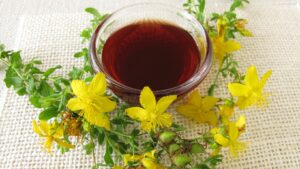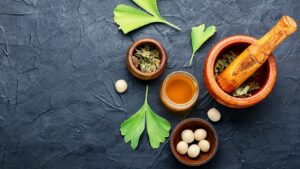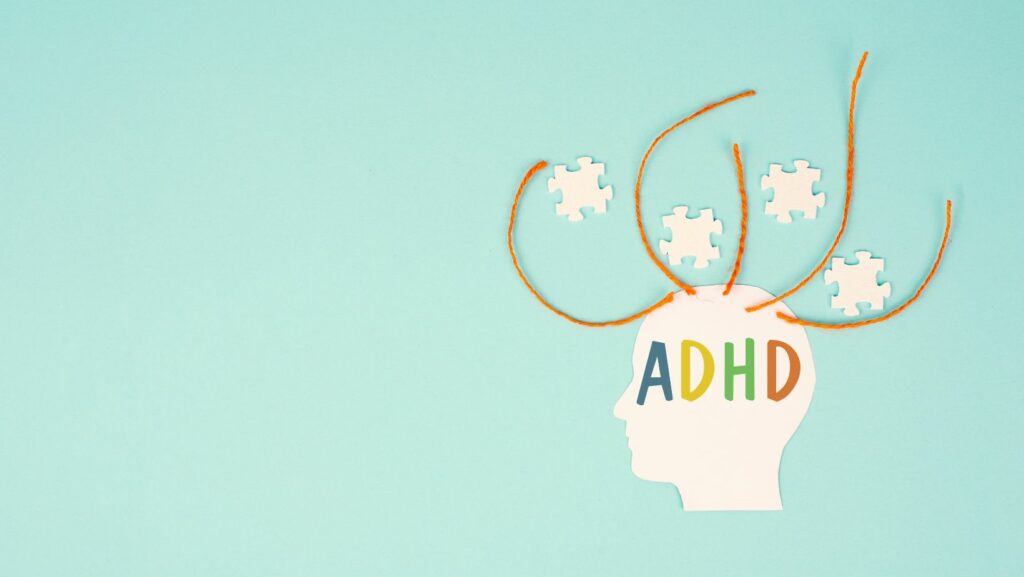In a world where attention spans are shrinking and distractions are multiplying, ADHD has become a common concern for many. While conventional treatments often involve medication, a growing number of individuals are turning to nature for solutions. Herbal remedies, with their roots in ancient practices, offer a promising alternative for managing ADHD symptoms.
These natural treatments tap into the power of plants, providing a holistic approach that many find appealing. From calming herbs like chamomile to focus-enhancing ginkgo biloba, the world of herbal remedies is vast and varied. As more people seek out these alternatives, understanding their potential benefits and limitations becomes crucial.
Understanding ADHD
 Attention Deficit Hyperactivity Disorder (ADHD) is a neurodevelopmental condition common in children and often persists into adulthood. It’s characterized by symptoms of inattention, hyperactivity, and impulsivity. Individuals with ADHD may find it challenging to focus on tasks, remain still, or control impulsive behaviors. These symptoms can impact academic performance, relationships, and daily functioning.
Attention Deficit Hyperactivity Disorder (ADHD) is a neurodevelopmental condition common in children and often persists into adulthood. It’s characterized by symptoms of inattention, hyperactivity, and impulsivity. Individuals with ADHD may find it challenging to focus on tasks, remain still, or control impulsive behaviors. These symptoms can impact academic performance, relationships, and daily functioning.
Diagnosis of ADHD involves a comprehensive evaluation by healthcare professionals, which includes interviews, questionnaires, and behavioral assessments. According to the Centers for Disease Control and Prevention (CDC), approximately 6.1 million children in the United States have been diagnosed with ADHD at some point.
ADHD is thought to result from a combination of genetic, environmental, and neurological factors. Research indicates that genetics significantly contribute to ADHD, with studies showing that the condition often runs in families. Brain imaging studies have shown structural and functional differences in the brains of individuals with ADHD, particularly in areas linked to attention and behavior control. Understanding these underlying factors aids in developing effective management strategies, whether through medication, behavioral therapy, or natural remedies.
Benefits Of Herbal Remedies For ADHD
 Herbal remedies for ADHD offer a natural alternative to conventional treatment, resonating with individuals seeking holistic approaches. These remedies promote balance in the body, often targeting multiple systems rather than isolating specific symptoms. For example, herbs like ginkgo biloba enhance memory and concentration, while chamomile provides calming effects beneficial for hyperactivity.
Herbal remedies for ADHD offer a natural alternative to conventional treatment, resonating with individuals seeking holistic approaches. These remedies promote balance in the body, often targeting multiple systems rather than isolating specific symptoms. For example, herbs like ginkgo biloba enhance memory and concentration, while chamomile provides calming effects beneficial for hyperactivity.
Many herbal options possess fewer side effects compared to pharmaceuticals, appealing to those concerned about medication-associated risks. Safety, however, should always be a priority, as natural doesn’t automatically equate to risk-free.
Herbs contribute to personalized treatment strategies. Because symptoms vary widely across individuals, a tailored approach involving herbs can address unique needs. As part of an integrated health plan, herbal remedies support an overall sense of well-being without detracting from more conventional therapies.
Research supports some herbal ingredients, offering scientific backing to traditional practices. For instance, studies on ginseng suggest it can improve attention spans, complementing other therapies. Exploring herbal treatments reconnects users with historical healing traditions that prioritize sustainable and ecologically friendly practices, aligning with modern perspectives that value organic and minimalistic lifestyles.
Herbal Remedies for ADHD
Herbal remedies are gaining popularity for managing ADHD symptoms. Key options include ginkgo biloba, St. John’s Wort, and valerian root.
Ginkgo Biloba
 Ginkgo biloba, known for improving memory, supports ADHD management by enhancing concentration and reducing distractibility. Originating from traditional medicine, ginkgo biloba offers neuroprotective properties that improve cognitive function. Clinical studies indicate its potential to support neurotransmitter activity, which is crucial for individuals with ADHD. For example, a study published in the Journal of Psychiatric Research showed improvements in attention and executive function with ginkgo supplementation.
Ginkgo biloba, known for improving memory, supports ADHD management by enhancing concentration and reducing distractibility. Originating from traditional medicine, ginkgo biloba offers neuroprotective properties that improve cognitive function. Clinical studies indicate its potential to support neurotransmitter activity, which is crucial for individuals with ADHD. For example, a study published in the Journal of Psychiatric Research showed improvements in attention and executive function with ginkgo supplementation.
St. John’s Wort
St. John’s Wort is traditionally used for mood regulation. Though not extensively researched for ADHD, it addresses associated symptoms like anxiety and depression. Its active compounds, hypericin and hyperforin, influence neurotransmitter pathways regulating mood. The herb’s mild side effects make it a consideration for individuals seeking a natural remedy for emotional balance. A systematic review in Cochrane Database found mixed results regarding its efficacy, emphasizing the need for further research.
Valerian Root
Valerian root, recognized for its calming effects, may aid hyperactivity and restlessness in ADHD. This herb promotes relaxation by interacting with gamma-aminobutyric acid (GABA) receptors in the brain. Its use in calming treatments dates back centuries, especially in Europe. A study in the Phytomedicine Journal suggested its benefits in reducing anxiety-related symptoms. Despite valerian’s sedative properties, monitoring the dosage is essential to minimize potential drowsiness.

